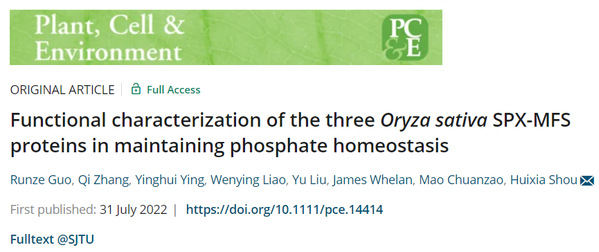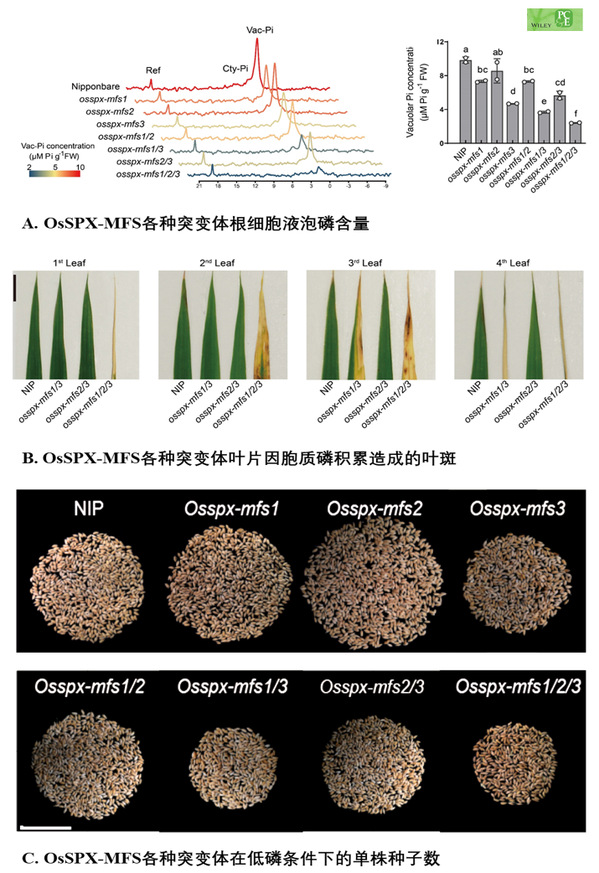
Title: Functional characterization of the three Oryza sativa SPX-MFS proteins in maintaining phosphate homoeostasis
Runze Guo, Qi Zhang, Yinghui Ying, Wenying Liao, Yu Liu, James Whelan, Mao Chuanzao, Huixia Shou
First published: 31 July 2022
https://doi.org/10.1111/pce.14414
Abstract
Plant vacuoles serve as the primary intracellular compartments for phosphorus (P) storage. The Oryza sativa genome contains three genes that encode SPX ( SYG1/ PHO81/ XPR1)-MFS ( Major Facility Superfamily) proteins (OsSPX-MFS1-3). The physiological roles of the three transporters under varying P conditions in laboratory and field are not known. To address this knowledge gap, we generated single, double and triple mutants for three OsSPX-MFS genes. All the mutants except Osspx-mfs2 display lower vacuolar Pi concentrations and OsSPX-MFSs overexpression plant display higher Pi accumulation, demonstrating that all OsSPX-MFSs are vacuolar Pi influx transporters. OsSPX-MFS3 plays the dominant role based on the phenotypes of single mutants in terms of growth, vacuolar and tissue Pi concentrations. OsSPX-MFS2 is the weakest and only functions as vacuole Pi sequestration in an Osspx-mfs1/3 background. The vacuolar Pi sequestration capacity was severely impaired in Osspx-mfs1/3 and Osspx-mfs1/2/3, which resulted in increased Pi allocation to aerial organs. High P in the panicle impaired panicle and fertility in Osspx-mfs1/3 and Osspx-mfs1/2/3. Osspx-mfs2 resulted in a more stable yield compared to the wild type under low P in field grown plants. The results suggest that alteration of vacuolar Pi sequestration may be a novel effective strategy to improve rice tolerance to low phosphorus in cropping systems.
Link: https://onlinelibrary.wiley.com/doi/10.1111/pce.14414






